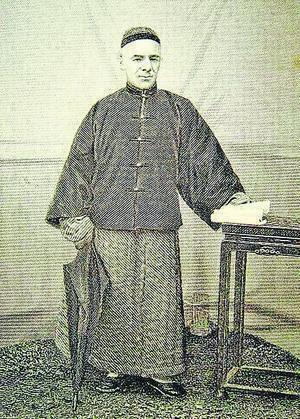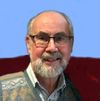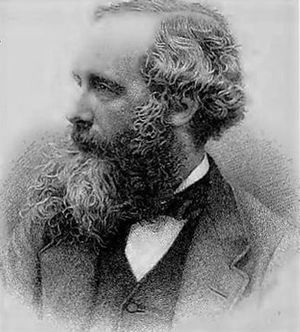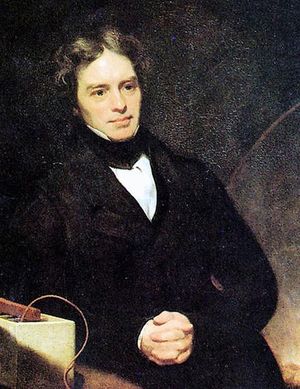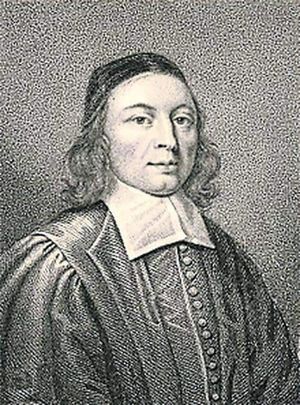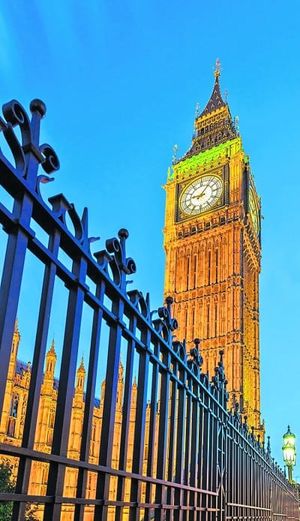William Chalmers Burns (1815–1868) (3)
In February 1849, William Chalmers Burns set his face towards the ‘regions beyond’ in mainland China and left for Canton. Foreigners were assumed to be rich, so he could become a prey to robbers. He carried a light purse and was even reluctant to have a Bible with a gilt clasp.
With a fear of war with England developing, foreigners straying from the trade ports were immediately suspect. Nevertheless, Burns would enter a village and start reading his Bible aloud under a tree and soon gathered an audience.
They had usually never seen a foreigner before, so his arrival often caused such a commotion that he ordered a Chinese costume and grew a pigtail to be less conspicuous.
His accent, deep set eyes and prominent nose meant that on closer inspection he was taken for a foreigner pretending to be Chinese, which led to him being arrested on one occasion.
‘Man of the book’
His 16-month stay bore little fruit, so he departed for Amoy, an island about 400 miles away, just off the mainland. Burns lived above medical missionary Dr Young’s school and studied the Amoy dialect.
He travelled over the island’s villages and about 30 mainland villages distributing tracts. He became known as ‘the man of the book’ and someone not to be troubled, even when other Europeans were threatened in an armed rebellion. Burns preached five times a day and worked on translating Pilgrim’s progress and an edition of hymns.
In 1854 he left Amoy on a preaching tour. His party included an ex-soldier and a converted fortune-teller, who turned his quick wit into arguments for the gospel.
Dr Young’s wife unexpectedly died, leaving him a broken man. Burns volunteered to accompany him, with his child and a Chinese nurse, back to Scotland in summer 1854. Dr Young died in Britain the following February.
People commented that Burns now appeared aged, greying and with a sallow countenance. His heart was back in China and he could be heard reciting Chinese Bible chapters and psalms, late into the night.
He sailed back to China in March 1855 and immediately headed for Nanking to investigate the stronghold of the Taiping rebels and determine the nature of their ‘Christian’ leader.
Hudson Taylor
He wore western dress and distributed tracts and books as he travelled by boat. The crew refused to go as far as Nanking because of the danger, so they returned to Shanghai via the Great Canal.
He was temporarily arrested by the mandarin, but sent on his way with an escort. People were so eager for his books that they swam to his boat, tied their pigtails over their heads in a knot, balanced the books on top of their heads and swam back to the bank.
The night before reaching their destination, the boat was broken into and everyone was robbed, but not harmed.
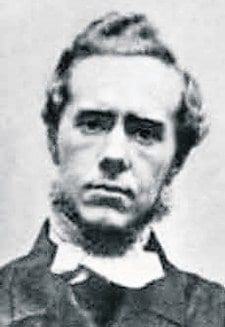
While based at Shanghai, Burns lived in a boat and travelled along the canals through the rice fields and mulberry plantations, visiting the many surrounding villages. He was accompanied by the boat of J. Hudson Taylor (1832–1905), ‘an excellent young English missionary’, who had several months earlier adopted the Chinese dress. So, from December 1855, Burns also wore it (until his death), mainly to reduce the commotion of the crowds and facilitate preaching.
The number of missionaries at Shanghai had grown, and Burns felt led to be more of a pioneer evangelist, so he sailed to Swatow with Hudson Taylor in March 1856.
It was a debauched area which pandered to the lusts of the sailors, but quite a few Scotsmen attended his services. Hudson Taylor left for Shanghai to get his medical equipment, so Burns carried on working with two local Chinese believers.
The people were hardened in idolatry, ravaged by opium, and known for the barbarity of boiling and eating their enemies’ hearts in clan feuds. ‘I need … the presence and power of God’s quickening Spirit to maintain divine love and compassion for souls in my heart’, he sighed.
He was shortly after robbed of everything except the clothes he was wearing. Hudson Taylor said, ‘Never had I such a spiritual father as Mr Burns’.
Sowing ministry
Later on Burns was arrested, suspected of being a rebel in disguise. On being asked by the magistrate to kneel down for the questioning, after the normal custom, he respectfully refused. ‘I will go down on one knee, as I would to my sovereign Queen Victoria, but I will only go down on both knees to the King of kings’. Struck by the solemnity of his reply, the magistrate conceded to his request.
He could only be released to a consul, so had to be escorted back to Canton. His two companions were detained for four months and only released following Burns’ intercession.
Burns took up residence with a Wesleyan Methodist physician, Dr de la Porte, on Double Island, about five miles from Swatow. He interpreted for the doctor and evangelised at the same time. He also carried out repairs to the doctor’s house, which was the only property in the vicinity to remain intact when a terrible hurricane battered the port.
When Lord Elgin, who later became Governor General of India, arrived at Swatow on the steamship Furious, Burns was invited aboard and the two became friends. Shortly afterwards, Swatow was added to the list of open ports.
It was thought that Burns could not count one decided Chinese convert as a result of his own ministry, but that his main work was in thoroughly breaking up the ground and plenteously sowing the seeds, for a harvest to be gathered by those who followed.
There had been about 300 conversions from the work of the other missionaries and 15 native colporteurs and evangelists, who were very zealous: ‘Oh, that Christians at home would go and do likewise — go everywhere, in streets, and lanes, and villages preaching the Word, and the Lord would certainly be with them, and his power be present to heal’.
Translation
Burns now travelled to Fuh-chow, capital of the Amoy district, where he immediately set about learning the dialect and preparing a hymn book. The three existing missions all felt privileged in sharing his help.
Persecution of native Christians was intensifying, so in October 1863 Burns sought to alleviate this suffering by seeking an interview with Sir Frederick Bruce (brother of Lord Elgin) in Peking, asking that Protestants should have the same rights as Roman Catholics.
This was not fully achieved, but he remained for three years assisting the four missions in the city and translating Pilgrim’s progress into the Peking dialect. While at Peking, he had his photograph taken for the sake of his mother — the only photo he ever consented to have taken.
In August 1867, Burns left the pleasant life at Peking for Nieu-chwang in Manchuria, because he felt the Lord had guided him to this place which had no one labouring there.
He held daily services at his house and in English at the consulate. ‘As he talked on, his face became all alive with the deep faith he had in the truths he endeavoured to communicate; and his face often became radiant with a light, revealing the love which warmed him into eloquence’.
As usual, he preached in the streets and sold books, but he caught a severe chill in January 1868 from which he never recovered.
Death
As his life neared its end, he was asked by a friend what he was murmuring. ‘I was saying over the 121st psalm. I was speaking with God, not with you’.
Later he laughed. ‘God was speaking with me, and this made my heart glad’. Two days later he commented: ‘God tells me to go’, and proceeded to give his final instructions. He wanted to be buried in his Chinese dress and not on a Sunday; the reading was to be 1 Corinthians 15.
‘Do not weep after my death. Do not pray for me, but pray for the living. Diligently pray and God will certainly send you a missionary. I am very happy. I do not fear death. After death there is unspeakable happiness to be hoped for’.
Thus William C. Burns passed into the presence of his beloved Emmanuel, on 4 April 1868, aged 53.

